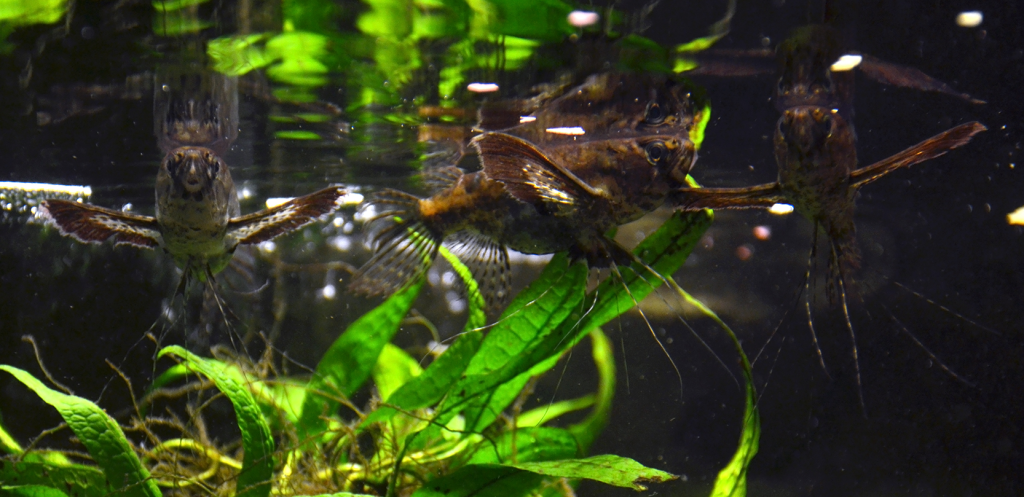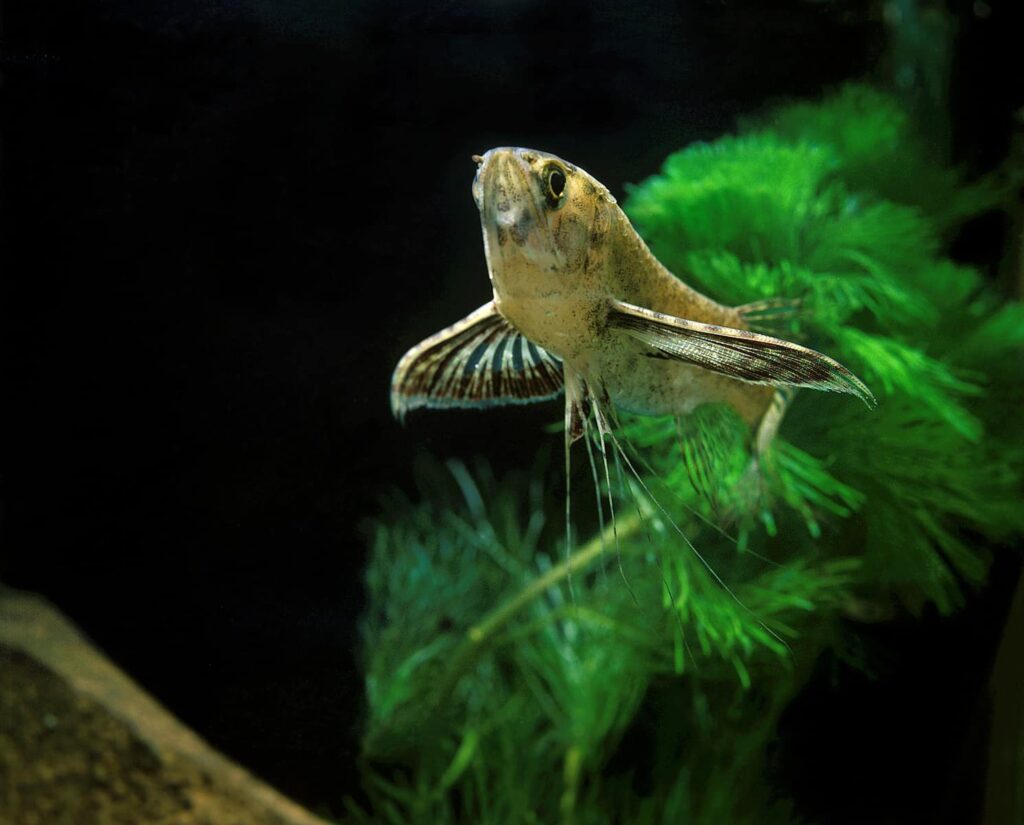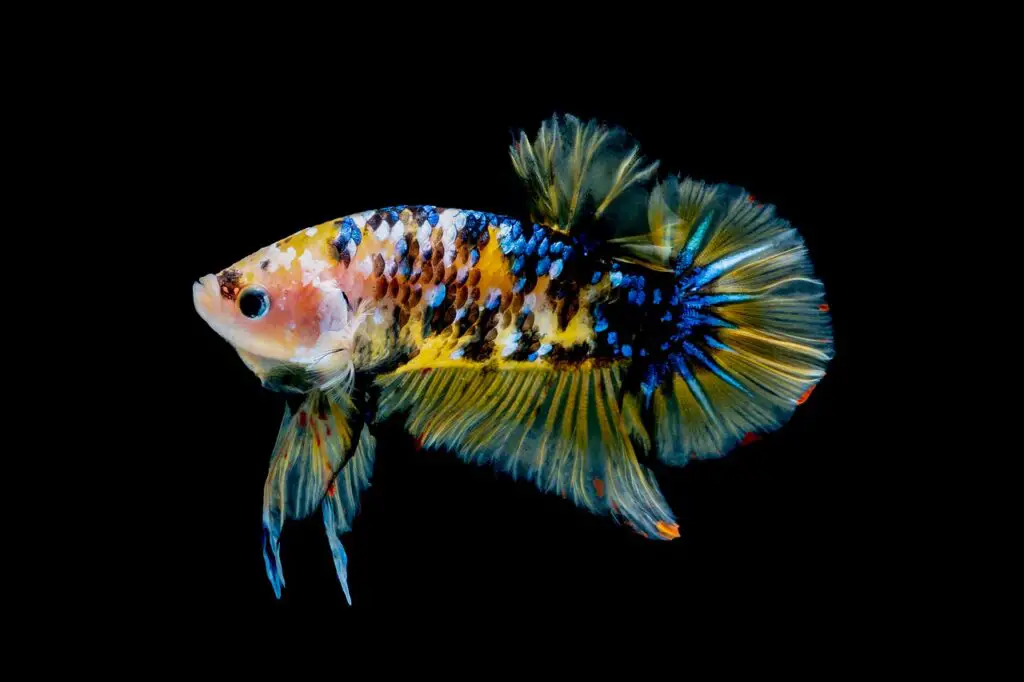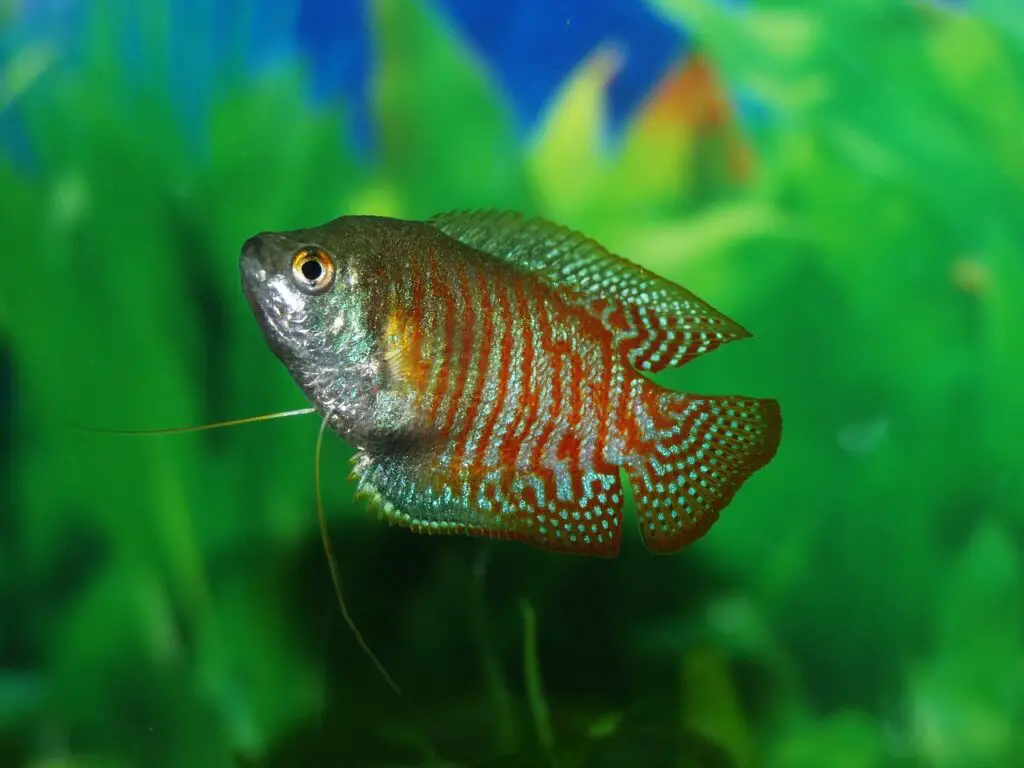When it comes to some of the most popular freshwater tank fish around, you will be hard pushed to find a species more loved than the majestic African butterfly fish.
The African butterfly fish is a wonderful looking species which tends to be a main pick for those tank keepers who are looking for something a little extra special to bring to their interior waters!
However, as always, it’s worth remembering that African butterfly fish, like other exotic species, will need specific care. You’re going to need to keep an eye on water temperature, balance, and to make sure that they have enough to keep them happy.

Unfortunately, the African butterfly fish is prone to all kinds of myths and misnomers floating around online, meaning it’s not always so easy to know quite what to do with them.
When in doubt, always consult an expert or make sure to speak to your vet if you have any worries about this interesting species. However, to get you started, this complete guide to African butterfly fish will make sure you know exactly what to do when it comes to giving your aquatic critters the best possible life.
What do African butterfly fisheat? How big should their tank be? How should you handle their water temperature and balance? In this full guide, we will let you know exactly what you can expect, and how you can do best by your fish.
How do you take care of African butterfly fish?
Taking care of African butterfly fish means making sure that you are able to recreate their wild habitat as best you can.
This means you are going to need to get very specific about the heat of their water, the size of tank they have to explore, and also the pH balance.
African butterfly fish tend to have very specific needs compared to many other creatures, meaning that some may find looking after them to be a bit of a challenge.
That said, anyone who owns and looks after these fish will likely tell you that they are a joy to behold. They are extremely eye-catching and are great to watch in the water.
Keen tank enthusiasts will always tell you that the best fish are absolutely worth the effort. And yes, though African butterfly fish can be a bit picky, how great will it be to home a few of them in your very own tank?

They are freshwater fish which love plant life, meaning that a small, cold, and empty tank really won’t go down well with them. Getting the specifics right is really important not only for their physical health, but also for their stress levels, too!
All fish can get really stressed out sometimes, and the African butterfly fish is going to need to have space that they are comfortable in, meaning that you must make sure to keep their wellbeing at the top of your agenda.
What food do they eat?
The African butterfly fish is a predator, meaning that you really should focus on serving up live food for them wherever possible.
The African butterfly fish is notoriously picky in this regard. In the wild, they are fantastic hunters, meaning there is likely to be nothing they enjoy more than nibbling on the odd insect.
However, they are also known to chow down on other fish, too, meaning it’s a good idea to keep them away from smaller species if you’d like them to share a tank!
African butterfly fish love meat. Strange but true! While these gorgeous creatures aren’t quite as aggressive as the piranha, for example, they do like getting their teeth into their food.
You really can’t go wrong with crickets, which seem to be their favorite bugs on the menu. If you’re looking for a fish that’s happy with flakes and pellets, you may wish to look elsewhere.
The African butterfly fish is likely to turn its snout up at anything slightly artificial, meaning you’re going to need to make sure that you give them the real deal.
If you really want to get into fish rearing and breeding, the African butterfly fish is likely to be a great choice. Just make sure you are careful with these fish as they can be tricky to maintain. If you love a challenge, the food is just the start!
What size the tank should be?
The size of the tank for your African butterfly fish should be around 40 gallons.
However, this is just the absolute base recommendation. This is the absolute minimum size – meaning that bigger is always better. This really does apply across most fish you will care for, especially those in freshwater.
However, the African butterfly fish is going to need a very particular type of tank. While 40 gallons really should be the minimum size, you must make sure that you give them a tall space rather than a long one.
The best tank for the African butterfly fish is going to be one where they can easily get to the surface of water. This is because they tend to be surface dwellers, meaning that they are never likely to be floating in the space underneath. If you don’t have any other fish in the tank, this is space that’s going to waste.
So – the golden rule – the bigger the better when it comes to the right tank for your African butterfly fish – and you should almost certainly go tall as opposed to long or wide.
Can African butterfly fish live together?
Yes, on the whole, the African butterfly fish can live peacefully with others of its kind.
However, you need to be careful when it comes to keeping too many African butterfly fish together. It’s likely that they can get aggressive if there is not enough space in the tank. This is yet another great reason why going bigger is always better when it comes to the size of the tank you pick for them.

The African butterfly fish is very sociable but if you don’t give them their own space, they can get very territorial and will be aggressive with one another. Once again, it is all to do with stress.
While the African butterfly fish can be tamed fairly easily, they will always need their own space to head to refuge. The same goes for most people, of course! We all need our own space and our own private quarters, and the African butterfly fish is especially keen on this.
You should always keep an eye on the stress and happiness levels of your African butterfly fish.
This can be tricky as they can be a little flighty but do make sure to check with your local vet or aquarium expert as to how much space is likely to work best for the number of African butterfly fish you want to host.
There is absolutely nothing stopping you when it comes to bringing several African butterfly fish together.
Is butterfly fish poisonous
There is nothing to suggest that the African butterfly fish is poisonous.
However, it is a very good idea to make sure you talk through the suitability of this fish with a local vet or fish expert. You need to consider your own needs and circumstances, as well as any other fish you have in your tank.
There is no clear reason why an African butterfly fish should be poisonous. In fact, in time, you can actually expect these creatures to start eating out of your hard!
They are magnificent looking and have great temperaments, but there are no clear reasons to us why you should fear being anywhere near them.
How do butterfly fish protect themselves?
Most butterfly fish, the African butterfly fish included, will tend to hide away at the first sign of danger.
Generally, while the African butterfly fish is a known predator and will prey on smaller creatures and animals, they will go and hide if they feel stressed out.

This is why it is a very good idea to make sure that there is nowhere in particular that they can get trapped or caught.
As mentioned, African butterfly fish may attack others if they are being territorial, or if they feel that they are under attack themselves. It may well vary from fish to fish and their various personalities! Yes – believe it or not, they certainly have them.
The African butterfly fish will defend itself wherever necessary, though you can help it along by storing various aquatic plants in their tank, meaning that they will have somewhere that they can easily hide away if they need to.
It’s all about giving your African butterfly fish the same experience they are likely to have in the wild – right down to the various nooks and crannies they can squeeze themselves into, and the temperature that they would normally experience out in their habitat.
How long do African butterfly fish live?
African butterfly fish can live to be up to 10 years old at home, on average.
This is a ripe old age for a fish! Therefore, providing you really offer your fish the best care possible, there is nothing to say that you won’t have great aquatic buddies for a decade to come.
Generally, you can expect the African butterfly fish to live for at least five years, though there are – as mentioned – quite a few parameters and factors you will need to keep in check if you want to give them as long a life as physically possible.
There’s no reason why you won’t be able to give your African butterfly fish a long and happy life providing you care for their water levels, their temperature, and give them plenty to do.
Food, of course, is also important. Just make sure to avoid giving them flakes – a life full of real meat is one that’s going to keep going and going!
Conclusion
The African butterfly fish can be a lot of hard work. The fact is, they are exotic fish which come from a very specific environment. It’s difficult to try and maintain this at home, which is why this fish is never really recommended as a starter pet.
The African butterfly fish can grow to be up to around 22cm in length, and they will often need huge tanks.

They will get on well with many other species, though again, you will need to be careful when it comes to any kind of compatibility. Clownfish and tangs, for example, tend to be great choices.
Do always be wary of the fact that the African butterfly fish can get aggressive and that it is prone to stress.
If you have read any of our guides on freshwater tank fish recently, you will know that there are plenty of exotic fish out there which are likely to feel this pressure.
The best way to combat this, of course, is to make sure that they have lots of space, and that they have little nooks that they can hide in if they want to.
Make sure that the water you provide to a African butterfly fish is changed regularly, and that the pH balance is between 6.5 and 7.0.
This is the best chance you will have of really replicating the habitat that they would otherwise expect when out in the wild.
We’d recommend taking a look at easier freshwater fish to keep – such as the dwarf gourami – if you are set on raising these critters for the first time. The African butterfly fish is a wonderful specimen that’s great fun to look at and even look after.
However, it requires an intensive amount of care, and what’s more, you are going to need to be at its beck and call with fresh meat and more besides.
Take a look at some of the other fish and critters you can welcome into your freshwater tank elsewhere in our online guides! We’re sure you’ll get a kick out of the African butterfly fish – but make sure you know what you’re getting into.



